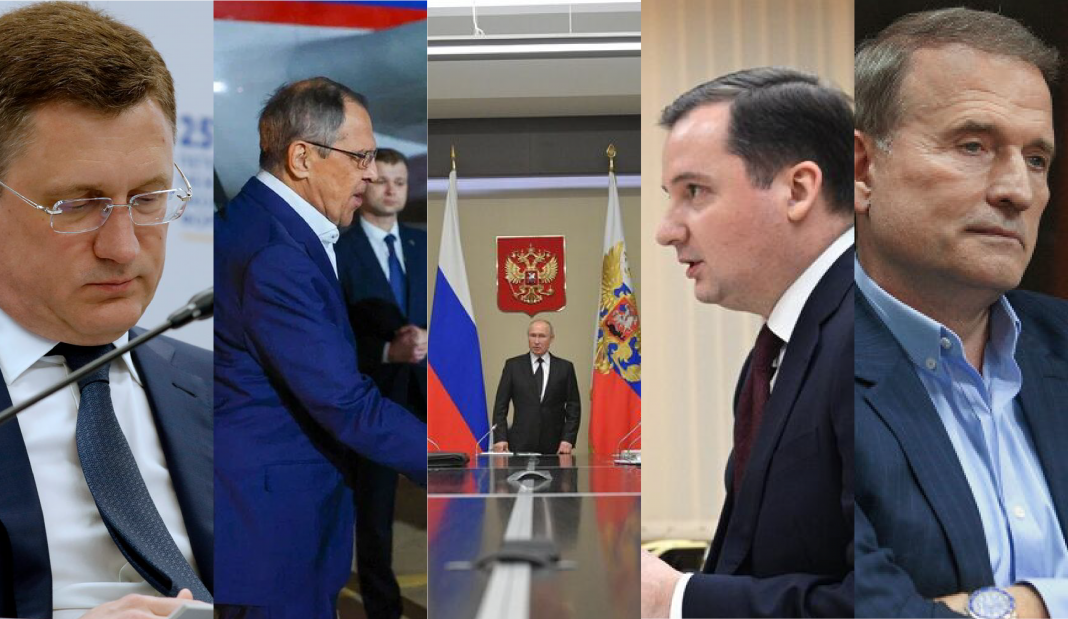This report describes the key events that had an important impact on the political, economic and social processes inside Russia.
Based on the results of the past week, the following key events can be brought to attention:
- The Kremlin is preparing for the anniversary of the invasion of Ukraine. Recently, information about the possible actions of the Russian authorities on these days has been actively disseminated: from a full-scale offensive to the dismissal of the entire leadership of the Russian Defense Ministry. At the same time, it is worth mentioning a severe change in the Kremlin’s tactics: if earlier any active actions were tied to conditional “sacred dates”, then over the past year, there has been a complete withdrawal from such a practice (at the same time, several Ukrainian and Western experts continue to build their forecasts, linking to such dates). According to Ascolta, a member of the Politburo of the Central Committee of the Communist Party of China (and former Foreign Minister), Wang Yi is due to visit Moscow shortly in preparation for Xi Jinping’s visit. Most likely, Wang Yi will visit Moscow between February 16 and 22, which may indicate that Moscow will not take any active actions against Ukraine at this time.
- Putin is increasingly focusing on domestic politics and the economy. To this end, he conducts internal visits and holds meetings with representatives of industries especially affected by the Western sanctions policy. Putin’s economic initiatives may partially outline his future Address to the Federal Assembly of the Russian Federation, which will pay significant attention to the functioning of the Russian economy in the face of sanctions. It can be assumed that the trip to the Arkhangelsk region became a kind of “running in” of these concerning one of the sectors that have been seriously affected by the sanctions – the forestry industry.
- Moscow is becoming more active on the Ukrainian issue. According to reports, Putin ordered to take control of important cities in the Donetsk Oblast (Bakhmut, Vuhledar and others) by any means, as well as to advance as much as possible in the Luhansk Oblast to reach the borders of the so-called “LPR”. As a result, now there are huge losses in the personnel and military equipment of the Russian Federation. This strategy consists of an attempt to reach the borders of territories previously “included” in the Russian Federation, as well as to hold elections there (for this purpose, Medvedchuk’s project was re-activated).
During February 6th -12th the following topics were the most relevant for Russia:
1. Meeting of the Security Council of the Russian Federation
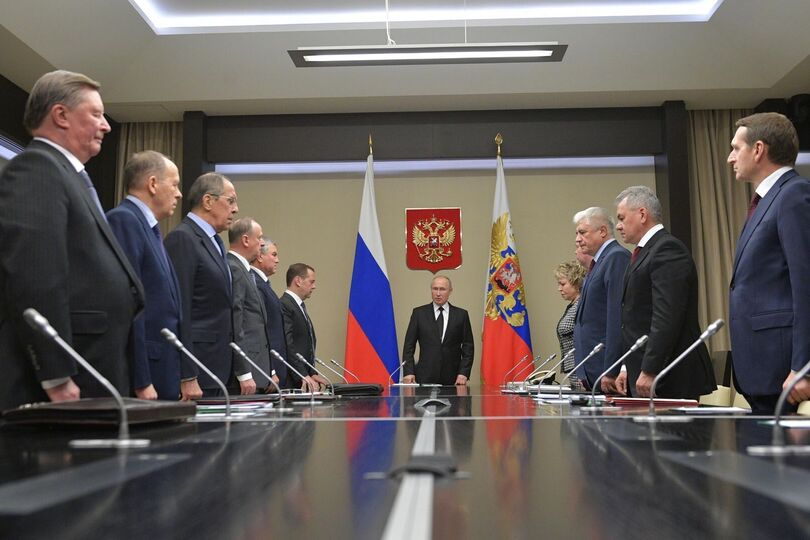
On Wednesday, February 8, Vladimir Putin held a meeting with the permanent members of the Russian Security Council. According to official information, the main topic of the meeting was the discussion of infrastructure development. In addition, they discussed the measures to improve fire safety and reduce the risk of emergencies during the flood period. The meeting was attended by Prime Minister Mikhail Mishustin, Chairman of the Federation Council Valentina Matviyenko, Speaker of the State Duma Vyacheslav Volodin, Deputy Chairman of the Security Council Dmitry Medvedev, Chief of Staff of the Presidential Administration Anton Vaino, Secretary of the Security Council Nikolay Patrushev, Interior Minister Vladimir Kolokoltsev, Defense Minister Sergey Shoigu, Director of the Federal Security Service Alexander Bortnikov, Director of the Foreign Intelligence Service Sergey Naryshkin, Special Representative of the President for Environmental Protection, Ecology and Transport Sergey Ivanov, as well as First Deputy Prime Minister Andrei Belousov, Aide to President Igor Levitin, Minister for Civil Defense, Emergencies and elimination of consequences of natural disasters Alexander Kurenkov and General Director – Chairman of the Board of Russian Railways Oleg Belozyorov.
Outcomes and outlook:
As Ascolta noted earlier, recently, Putin has significantly stepped up the work of the Russian Security Council. In particular, this meeting was the fourth in the last three weeks. Moreover, in this case, the composition of the meeting participants and the official topics for discussion announced in the media raises many questions. This is likely not about eliminating floods or discussing infrastructure facilities.
According to our sources, at the Security Council of the Russian Federation meeting, they also talked about the hostilities in the East of Ukraine and about “working on the mistakes” of the past year (including intelligence, logistics and other work). They also talked about the mood in society and the army, especially against the rise of such an ambiguous figure as Yevgeny Prigozhin, whom they are trying to glorify as much as possible, turning him into a conditional modern “Kotovsky”. It is no coincidence that immediately after the meeting of the Security Council, Prigozhin was banned from recruiting new prisoners in Russian prisons, who traditionally replenished his Private Military Company.
Also, during the meeting, they discussed possible changes to Russian legislation that would allow the legalisation of private military companies as an element of the Armed Forces of the Russian Federation. This issue has long been lobbied by many politicians in Putin’s inner circle and is an integral part of future military reform.
According to reports, Putin is scheduled to deliver a speech to the Federal Assembly on February 21. Despite several statements about possible reshuffles in the top military leadership, there is currently no confirmation of these rumours. At the same time, in his address, Putin will still be forced to draw attention to severe shortcomings in implementing the so-called “SMO”. According to available information, Putin instructed to take control of important cities in the Donetsk Oblast (Bakhmut, Vuhledar and others) by any means, as well as to advance as much as possible in the Luhansk Oblast to reach the borders of the so-called “LPR”. Now, there are huge losses in the personnel and military equipment of the Russian Federation.
Suppose this plan is successfully implemented after February 24. In that case, we should expect not a full-scale offensive, which is increasingly being talked about in the media, but another lull that Russia will need to recuperate.
2. Viktor Medvechuk’s article in RIA Novosti
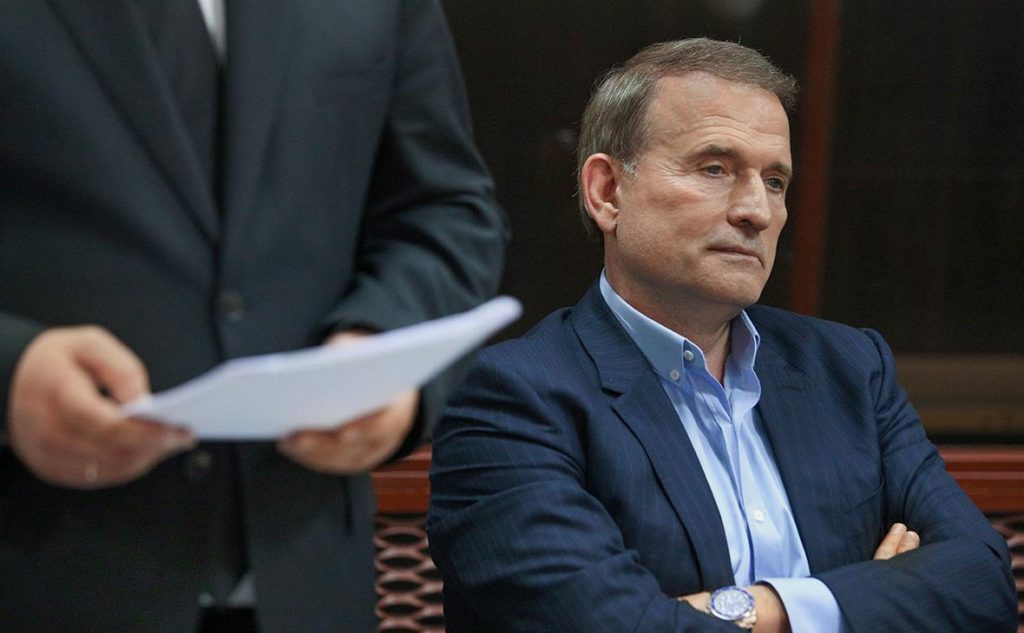
The former deputy of the Verkhovna Rada of Ukraine, Viktor Medvedchuk, published another article. This time it was for the RIA Novosti bulletin. In the article “Causes of the conflict. Was the Ukrainian tragedy inevitable?” he spoke about the reasons for the Russian-Ukrainian war, the participation of the EU and the US in it, and Vladimir Zelensky.
Key theses:
- “Having become politically and economically dependent on the United States, most countries have not so much gained as lost. Economic crises hit them; some even plunged into civil wars and poverty. But the new order was supposed to pull the world out of poverty and bloodshed, but this did not happen.”
- “For 30 years, Russia, from an exemplary student of Washington, is gradually turning into its antagonist.”
- “Ukraine, on the contrary, remained the most faithful to the pro-American course, ultimately making it the poorest country in Europe.”
- “It is easy to assume that after Ukraine changes its political orientation, many countries will follow its example, and the US global monopoly will begin to suffer defeat.”
- “The European Union repeats the mistake of the Soviet Union when a smaller number of republics fed more. In such a situation, the leadership of subsidised regions turned into specialists in knocking money out of the centre. Still, the interests of those who filled the general budget were always little considered.”
- “This is not just about Russia, but about several countries in Asia, South America and Africa that are catching up with Europe in terms of technology development and product quality”.
- “In the Ukrainian conflict, the national attribute completely lost its ethnic meaning, giving way to political meaning.”
- “Ukrainian history has shown that the information war begins long before the unrest. It penetrates the media, culture, education, science, and public life. And not all participants in these processes know they are a tool in the wrong hands.
- “To say that the Ukrainians did not fight against neo-Nazism, against the infringement of their rights and the destruction of their country, can only be said by those who do not know anything about the real situation in the country.”
- “If Zelensky hadn’t been so proud and deceitful, the war could and should have been prevented. If he thought more about the benefits of his country, the fate of its citizens, and the real intentions of key players, the catastrophic situation could have been avoided.”
- “Inside one Ukrainian conflict, there are three. The first is political, when all non-pro-Western parties are ignored and declared traitors. Then ethnic, when representatives of the country’s second-largest ethnic group – Russians and Russian speakers (which would be enough for an independent European country) – are deprived of their native language, culture, and history. But there is a third, a religious one. Zelensky, with medieval savagery, set the Ukrainian state against the only canonical Orthodox Church, provoking a religious war.”
- “The point is that Zelensky, whether he realises it or not, is a fifth column not only for Ukraine but for Europe.”
- “Ukrainian opposition politicians, journalists, and just caring citizens did everything they could to prevent Ukraine from becoming a battlefield. Many of them gave their lives, health, and freedom for this. But President Zelensky betrayed them, for the sake of a spectacular pose, for the sake of an approving pat on the shoulder of “senior comrades”, for the sake of the front pages of foreign publications.”
Outcomes and outlook:
Viktor Medvedchuk’s stormy activity, which has been noted in the Russian media since early 2023, is increasingly revealing the outlines of a project that appears to be actively supported by the Kremlin. Suppose a few weeks ago, both in Russia and Ukraine, Medvedchuk’s activation was discussed in the context of attempts by pro-Russian forces to prepare a gradual revenge in Ukraine. In that case, it is already becoming clear that Medvedchuk’s project is designed not for the Ukrainian but for the Russian audience.
His theses and public statements form a distinct image of the Ukrainian people for the Russian buyer. According to Medvedchuk, this image is based on a fundamental split that divides Ukrainians into “normal” or “their own”, who supposedly consider Russians a fraternal people and are ready to build good neighbourly relations, as well as into “Nazis” and accomplices of Western structures who do everything to destroy Russia. Of course, such an image is strange to Ukrainians. Still, it fits well into the model of consciousness of Russian society, which forms an opinion by consuming ready-made images of theses or ideas.
This technology of “two Ukraines” has been repeatedly used in history. Many Russians ideologically accept the division into “good” and “bad” Ukrainians. It partly explains both the difficulties Russia faces during the so-called “SMO” and the cruelty practised against the Ukrainian population, and even partly levels the negative attitude towards Ukrainians living in Russia from the native Russians.
Such technology is not designed for the current division of Ukraine but rather for its division in the minds of Russian society. Hence the constant repetition of the thesis demonstrates that it is not Ukraine that is aggressively disposed against Russia, but only an insignificant part of its citizens.
Moreover, the appeal to Vladimir Zelensky personally is becoming more and more noticeable. In Medvedchuk’s article, Zelensky is the main “evil” because the Minsk agreements failed, the activity of external factors intensified, society was Nazified, and, as a result, the war began.
Medvedchuk’s main task is to form the image of a “normal Ukrainian” for the Russian audience. Of course, this image will have nothing to do with the average Ukrainian’s real image and will not reflect the real mood in Ukrainian society, but such a goal is not set.
At the same time, one can hardly talk about a possible political future for Medvedchuk in Ukraine. According to available information, the Presidential Administration of the Russian Federation is preparing for elections in the temporarily occupied territories of Donetsk, Luhansk, Zaporizhzhia and Kherson Oblasts in an accelerated format (in September 2023). It is precisely for these elections that Medvedchuk’s project is being prepared. During his stay in Russia, Medvedchuk never met with Vladimir Putin, whom he let down very badly on the Ukrainian issue. Still, he received serious support from Dmitry Medvedev, Deputy Chairman of the Security Council of the Russian Federation, who, as our sources say, convinces officials of the Presidential Administration to give the “green light” to Medvedchuk’s projects and initiatives because “he suffered such suffering that none of us endured.” Medvedchuk, in alliance with Renat Kuzmin, is forming a team of Ukrainian experts and politicians who fled to Russia after the start of the war and is increasingly active in the temporarily occupied territories of Ukraine. In the Presidential Administration, he is actively assisted by Deputy Heads of the Presidential Administration Sergey Kiriyenko and Alexey Gromov (the latter is the direct curator of RIA Novosti).
If this project is implemented, the Kremlin may use Medvedchuk as a “legitimate” negotiator with Kyiv and even try to include him in the negotiating group, using him as the author of some “drafts of a peace treaty.”
3. Vladimir Putin’s visit to the Arkhangelsk Oblast and economic initiatives
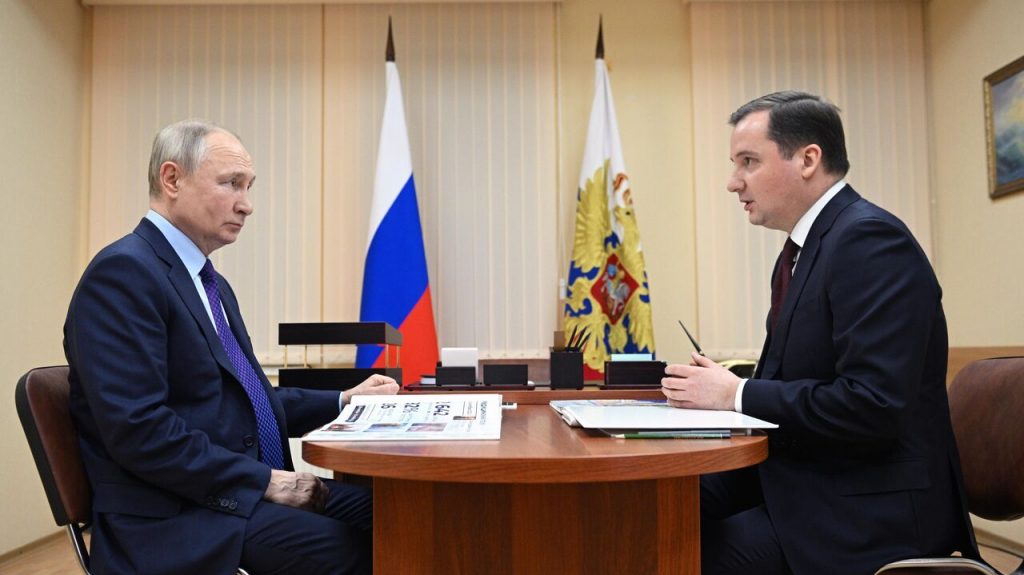
On Friday, February 10, Vladimir Putin arrived in the Arkhangelsk Region with a working visit. He visited the Ustyansk Timber Processing Complex and held a meeting on the development of the industry via videoconference. Putin also met with Arkhangelsk Oblast Governor Alexander Tsybulsky and put forward a number of economic initiatives.
Timeline:
- When visiting the production shops of the Ustyansk Timber Complex, Putin was accompanied by Presidential Plenipotentiary Envoy to the Northwestern Federal District Alexander Gutsan, Governor of the Arkhangelsk Region Alexander Tsybulsky and General Director of the enterprise Vladimir Butorin.
- After a visit to the production site, Putin started an online meeting on the development of the timber industry, which is attended by relevant ministers, as well as regional governors.
Putin’s key theses:
- “Timber reserves in Russia are 82 billion cubic meters, in Brazil – 126 billion, in the US – 47, in Canada – 30 and in China – 14 and a little.”
- “As we know, the European market is closed for our companies. As a result, all this led to a decrease in production in the industry.”
- “We must certainly sustain the strategic vector of development of the timber industry complex, and this, let me remind you, is an increase in demand within the country, an increase in our processing capacities and the production of high-quality products with high-added value, including wooden houses, furniture, paper, and so on.”
- “In addition, it is necessary to increase the use – as is done here – of biofuels in the housing and communal sector.”
- “First of all, I ask the Government, together with Russian Railways, to see what can be done to increase the export of products by rail.”
- “In this regard, I ask you to provide subsidies for sea transportation of woodworking products from the ports of the North-West. Colleagues spoke about the fact that this will also be connected with loading the port of St. Petersburg – right, I agree entirely.”
- “I propose another solution, namely to give businesses a deferment – this was also mentioned today, I agree with this – to pay the lease of forest plots for unharvested timber”.
Outcomes and outlook:
The visit to the Arkhangelsk region is interesting in two aspects. Firstly, this is an internal personnel victory for presidential aide Maxim Oreshkin, whose protégé and protege is the governor of the Arkhangelsk region Alexander Tsybulsky. Against the background of the decline in the influence of a group of liberals in the Russian economy (Siluanov, Gref, Nabiullina). It is quite possible to predict the strengthening of the Oreshkin-Tsybulsky tandem during the subsequent personnel changes in the executive branch of the Russian Federation.
In this regard, Ascolta has previously written about the growing influence of Oreshkin and his growing role in Putin’s entourage.
Second, Putin’s economic initiatives may partially outline his future Address to the Federal Assembly of the Russian Federation, which will pay significant attention to the functioning of the Russian economy under sanctions. It can be assumed that the trip to the Arkhangelsk region became a kind of “running in” of these concerning one of the sectors that have been seriously affected by the sanctions – the forestry industry.
4. Statement by Alexander Novak on the reduction of oil production in Russia
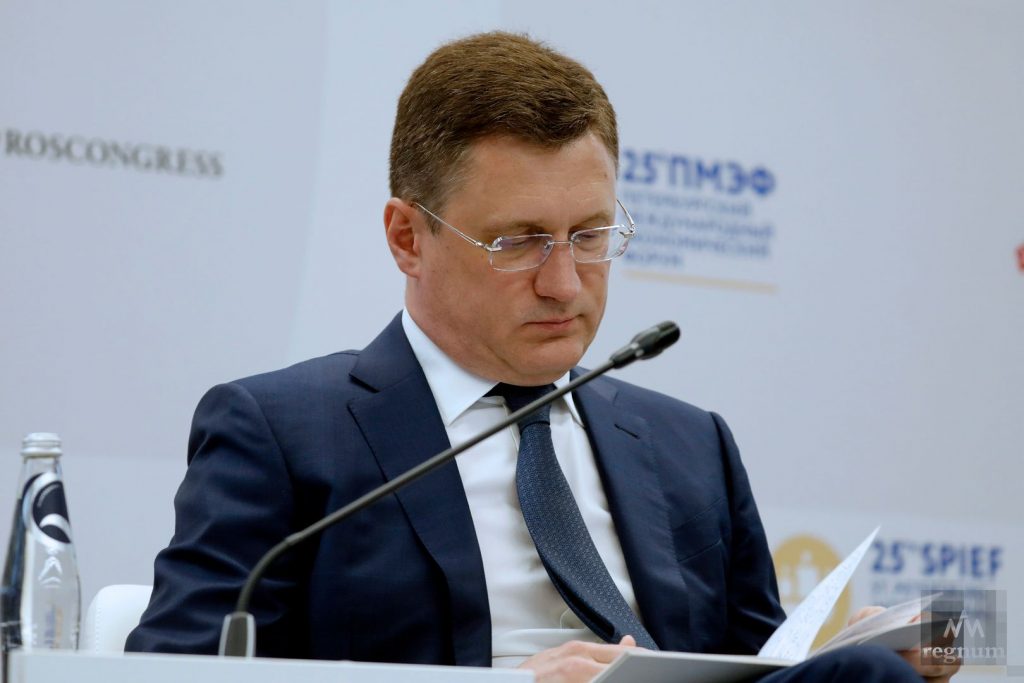
On Friday, February 10, Russian Deputy Prime Minister Alexander Novak announced that Russia would cut oil production by 500,000 barrels per day in March. According to him, this step will contribute to the restoration of market relations. Novak also noted that today Russia fully sells the entire volume of oil produced. At the same time, according to the Deputy Prime Minister, the risks of reducing oil production in Russia in 2023 remain, and the government will assess them in the near future.
Outcomes and outlook:
Of course, Russia’s actions to reduce oil production should be seen as a response to the imposition of Western sanctions on Russian oil, which came into effect on February 5. Novak’s statement immediately impacted the rise in world oil prices. Over the past week, the price of Brent rose by $5 to $86.5 per barrel of oil. At the same time, on the day of Novak’s statement, the Central Bank of Russia lowered the forecast for the price of Urals oil for 2023 from $70 to $55 per barrel.
Also, the day before Novak’s statement about the reduction in oil production, the Ministry of Finance of the Russian Federation announced a revision of oil taxes, which should be approved before the end of February. On behalf of the President, the Russian Federation’s Government must submit proposals by March 1 to clarify the methodology for determining prices for oil and petroleum products used to tax companies in the industry. According to available information, the departments are discussing the idea of tying taxation to the price of the Brent benchmark at a discount of $20 per barrel (the wish of the Ministry of Finance, which is interested in a higher level of taxes) or $35 per barrel with a gradual decrease to $25 (the proposal of the Ministry of Energy).
In his statement, Novak clarified that Russia would cut oil production from actual production levels and not from the quota set by the participants in the OPEC+ agreement. Under this agreement, the maximum oil production limit for the Russian Federation from November 2022 is set at 10.478 million barrels per day. But, in January 2023, according to Novak, the Russian Federation produced only 9.8-9.9 million barrels of oil.
In the Russian media, experts interpret this issue quite optimistically: “Novak’s words about the reduction of oil production by half a million barrels per day since March are on the same line as the plans also from March to revise the procedure for determining reference prices for exported oil for its taxation. On the one hand, we are straining the market globally and with our current customers. On the other hand, we encourage exporters to wean the same buyers from discounts. Otherwise, the tax consequences will fall on the exporters themselves. The goal is the same: maximising revenue, not sales. Since we are going for this aggravation, we are ready for it and can afford it.”
It is noteworthy that, according to Novak, Russia’s decision to cut oil production in March was voluntary, and there were no consultations with other countries. At the same time, commenting on this decision, Dmitry Peskov said that the Russian side consulted with several OPEC+ members before deciding to voluntarily reduce oil production in March. Moreover, on January 30, Vladimir Putin had a telephone conversation with the Crown Prince of Saudi Arabia, Mohammed bin Salman Al Saud, during which they discussed cooperation within OPEC+ to ensure the stability of the global oil market.
Apparently, in matters of confrontation with the West in the energy plane, Putin is increasingly relying on the support of Saudi Arabia and other Middle Eastern players. It is worth recognising that, at present, such an alliance is demonstrating its effectiveness and playing against the West. At the same time, given the versatility of the Middle Eastern states’ policies and the interweaving of many interests in this matter, one should not count on a solid alliance.
In any case, Russia’s attempt to redirect energy exports to Asian countries demonstrates a significant decrease in revenues, negatively affecting the budget’s filling and further planning. Most likely, we are talking about a time bomb in the country’s economy. At the same time, the most important allies (Saudi Arabia, China, India and others) are in no hurry to make public alliances with Moscow and guarantee Putin’s full support.
5. Sergey Lavrov’s visit to Mali, Mauritania and Sudan
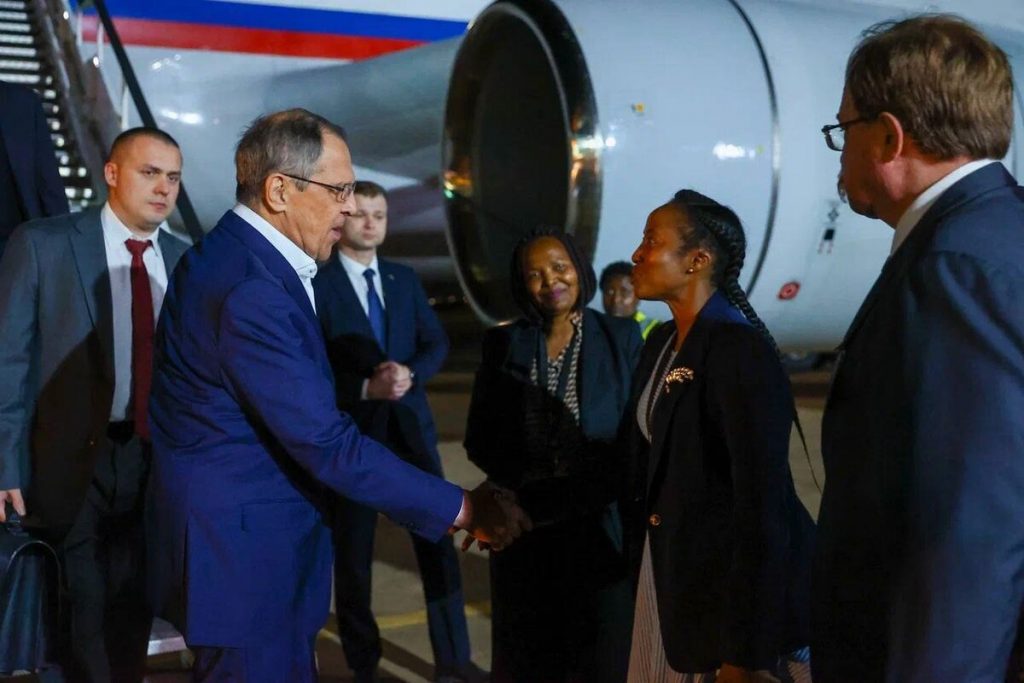
Last week Foreign Minister of the Russian Federation Sergey Lavrov visited several African countries, particularly Mali and Mauritania. This is the second wave of trips of the leader of Russian diplomacy to African countries (on the 20th of January, he visited South Africa, Angola, Eswatini and Eritrea). Lavrov also made several trips to African countries last year. During the journey, Lavrov met with the Transitional President of Mali, Colonel Assimi Goita and the Foreign Minister of Mali, Abdoulaye Diop, with the President of Mauritania, Mohammed Ould al-Sheikh al-Ghazouani with the Foreign Minister of Mauritania, Mohammed Salem Ould Merzouk, Foreign Minister of Sudan Ali As-Sadeq, Deputy Chairman of the Supreme Council of Sudan, Colonel-General Mohammed Daglo, Chairman of the Supreme Council of Sudan, Colonel-General Abdelfattah Burhan.
Outcomes and outlook:
Russia’s interest in the Sahel countries is traditional. Wagner PMCs have an active presence in Chad and Mali (as well as in the Central African Republic and the Democratic Republic of the Congo). In 2021, due to a military coup supported by the Wagnerites, Colonel Assimi Goita came to power in Mali. In May 2022, the Wagnerites helped Goita suppress a military rebellion inspired by France (the French have long wanted to regain control over Mali, which they lost back in the early 2010s as a result of the “civil war” in Mali, or rather the struggle for control over spheres of influence in the Sahel).
Lavrov’s visit to the region is especially interesting against the background that the US and France have announced their programs for the Sahel (economic, environmental) in 2021. From the perspective of the Russian Federation, strengthening its presence in this region is a new challenge to the West.
It is noteworthy that Lavrov arrived in Sudan on the same day as the delegation of six ambassadors from the EU and the United States. At the same time, Bloomberg stressed that the visit of the six ambassadors was prepared for a very long time and carefully, but Lavrov’s visit nullified all diplomatic efforts. The ambassadors left virtually with nothing. Thus, the leadership of Sudan made its priorities clear, and Russia received a small diplomatic victory.
The visit to Mauritania, considered the region’s main NATO ally, is also noteworthy. Most recently (in October last year), US Deputy Secretary of State Victoria Nuland visited here. In the summer of 2021, the Mauritanian government signed an agreement on military-technical cooperation with Russia.
From the viewpoint of the West, the countries of the Sahel (Burkina Faso, Mauritania, Mali, Niger and Chad) play a major role in combating the threat of Islamic terrorism and its intensification in the rest of the continent. The Regin of the Sahel is important in terms of its impact on the political life of Africa as a whole. Lavrov’s visit should not be underestimated, primitivizing it and reducing it to “Russia has nowhere else to go – no one accepts them.” In many ways, this is a defining visit since a lot depends on the position of African states today (from the development of markets to voting in the UN). In addition, the African continent is a sphere of conflict of interests of at least four major players – the United States, China, France and Russia, and interaction in this region also determines positions on other issues (in particular, the clash of France and Russia in Mali has a serious impact on the climate of relations between Paris and Moscow in the Ukrainian question).

